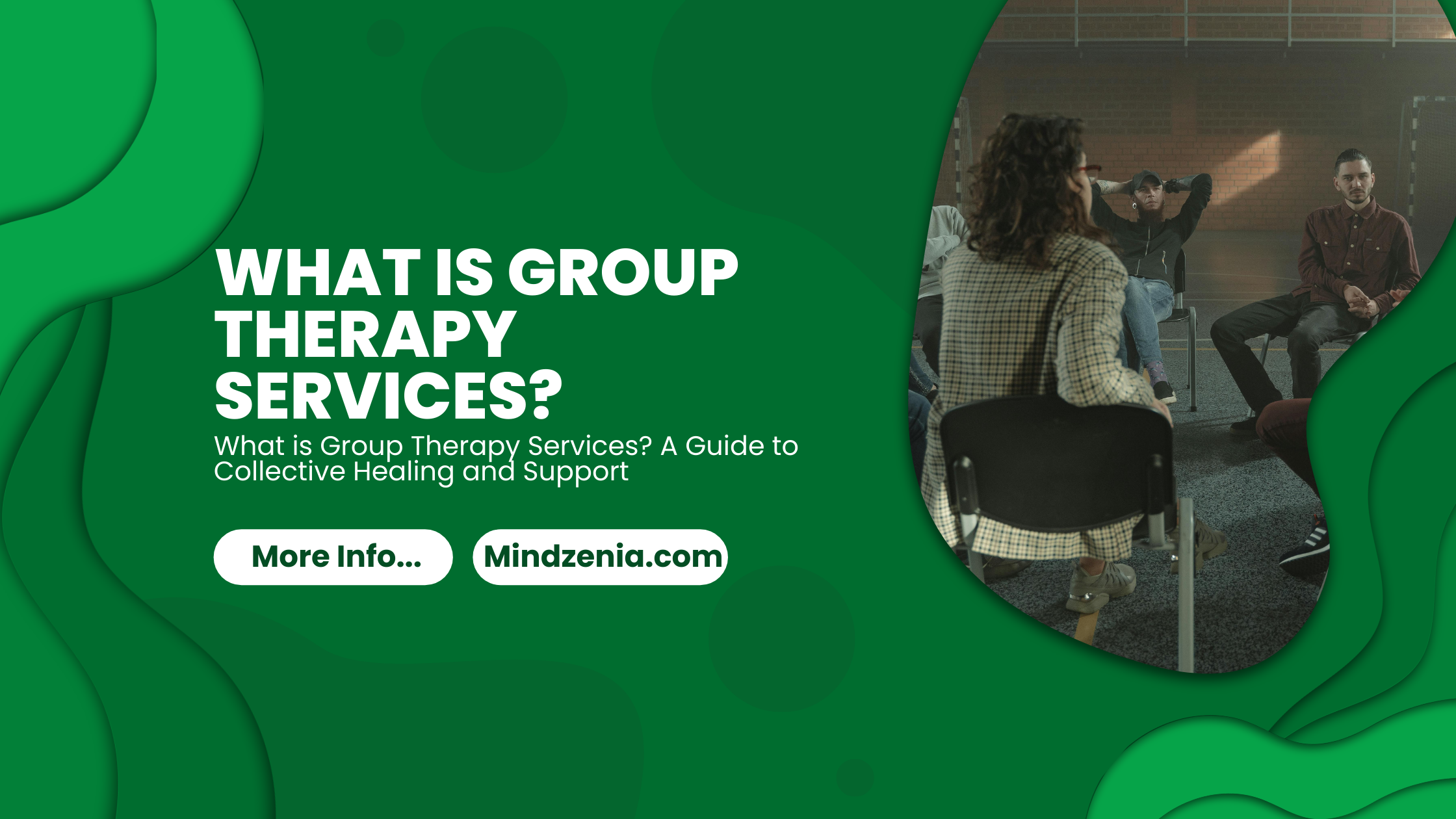What is Group Therapy Services? A Guide to Collective Healing and Support
Group Therapy Services can be described as one of the most effective ways of providing such treatment since clients are grouped according to their experiences. In contrast to the one-on-one psychotherapy, group therapy entails several patients dealing with their problems in a group with the help of a professional therapist. This therapy type utilizes group processes to promote support, acceptance, and change. In this blog post, we’ll discuss what Group Therapy Services entail, the advantages of such services, the various forms of group therapy, and why they could be advantageous in treatment programs.
Understanding Group Therapy Services
Group therapy services are organized sessions where a number of people (generally five to fifteen) attend a therapy meeting to share experiences. Such sessions are usually led by one or several therapists who contribute their perspective, encourage, and monitor the participants’ interactions. Cognitive behavioral therapy can be applied to treat a variety of disorders and concerns such as depression, anxiety, addiction, trauma, and interpersonal conflicts.
Types of Group Therapy
- Support Groups: It is available in online forums, chat rooms, and social networking sites, offering both social and practical support to persons with unique concerns like mourning, substance dependency, or chronic sickness. This we find because participants provide their experiences and ways through which they have been able to cope with the challenges they face, eliciting a common feeling of belonging to the group.
- Cognitive Behavioral Therapy (CBT) Groups: CBT groups aim at the identification of cognitive and behavioural patterns that contained self-defeating aspects. Cognitive behavioral techniques include having the participants engage in group talks and activities to help them alter vices with better ones.
- Psychoeducational Groups: These groups seek top offer information about certain mental disorders and raise awareness about applying coping skills. It may encompass coping mechanisms, control of anger, or general knowledge useful in case of certain illnesses like depression or anxiety.
- Process-Oriented Groups: These groups are the ones that charge more attention on the relations that are existent between the group members. Members work through and analyze their feelings and actions towards other people, enabling them to understand their social ways and patterns as well as learn how to relate well with others in the community.
- Skills Development Groups: It’s important to make a distinction between these support groups and skills training; these groups teach specific practices like communication, social skills or coping. These skills are taught and brought into practice through group working sessions or drama content as well as simulations.
Benefits of Group Therapy Services
- Shared Experiences: It is always refreshing in group therapy since it creates the awareness that no one is uniquely alone in facing these issues. Listening to stories of others and telling your experience can make a person feel better, that they are not lonely.
- Diverse Perspectives: One advantage for the patient is that the group allows listening to others’ opinions and ways of dealing with problems, which are not the same as one’s own. This is especially important because it opens new perspectives and ways of approaching the issues you have.
- Social Support: Since relationships are fostered within the group there is a supportive network in the group. Clients make good friends as they can encourage and support each other throughout the week aside from the therapy sessions.
- Cost-Effective: In terms of cost, group therapy is more costly than individual therapy. As a result, it is available to a larger population, enabling people to get professionals’ help at a cheaper price.
- Enhanced Social Skills: Electronic communication with other group members enhances the growth of interpersonal and communication skills. These skills can prove helpful in social settings and relationships as well as in organizational and employment settings.
- Therapist Guidance: Therapist helps to ensure that the discussions are productive and that the dynamic of the group is appropriate. Therapists are involved in offering advice, advice and treatment methods when considered relevant.
How Group Therapy Services Work
Group therapy can be more organized and have a set plan or it can be less formal, depending on the type of group and the therapist. undefined
- Introduction and Warm-Up: Most sessions start with an opening or a quick round where each participant self-discloses the current emotional state or any events that have occurred since the previous session.
- Main Discussion or Activity: The main content of the session entails focused talk about particular issues, an implementation of therapeutic tasks or use of assignments. These are handled in a structured manner and the therapist encourages all the family members to express themselves.
- Feedback and Reflection: When the session has come to an end, it is common for the participants to express their opinion about the discussion or the activity performed. This is the best time to give and receive feedback for development and it is always good to be corrected.
- Closing: Most of the sessions are closed with a brief revision of the materials and points that were discussed, and with an indication of the tasks that may need to be conducted prior to the next meeting.
Conclusion
There are a variety of reasons to value group therapy services with great enthusiasm as one of the most effective forms of intervention. The intended audiences of such services consist of people with specific issues – in group settings, they can discuss with others in similar situations, learn from new insights, and, thus, develop effective coping strategies. If you are struggling with mental disorders, want to change your personality or simply want to become a better person this is one of the most effective aspects of therapeutic process. I think that the capacity to harness group dynamics reveals transformation in focus and meaningful change..

